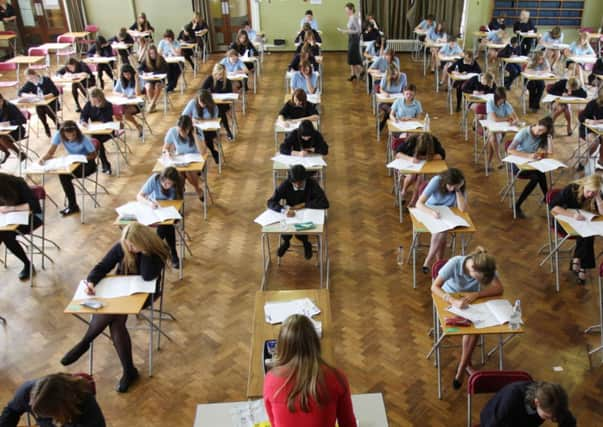Exclusive: Yorkshire ‘needs to set up its own city challenges’ to drive up standards


A pathfinder project to raise standards is set to be expanded this year to 30 more primary and secondaries which will see improving schools working in groups to share ideas.
So far 26 schools have been working together as a result of Yorkshire’s 15 local education authorities joining forces.
Advertisement
Hide AdAdvertisement
Hide AdHowever the expert leading the scheme says a much bigger project is needed if the region is to close the gap with the rest of the country and transform the life chances of the county’s poorest pupils.
A meeting is taking place with officers and councillors from 15 councils later this month to discuss future options.
Yorkshire has fewer schools rated as good by Ofsted than anywhere else in the country and the county has the lowest level of students getting to the benchmark of five good GCSEs, including English and maths. This figure fell by six per cent in the summer to 53.1 per cent of pupils - the lowest of any region in England.
Last year the Yorkshire Pathfinder initiative was launched after an education summit in Leeds saw councils set out the goal of making the region’s education system world class.
Advertisement
Hide AdAdvertisement
Hide AdThe pathfinder project has worked by grouping together 25 improving schools in an attempt to learn lessons which could become a blueprint for wider school improvement.
Schools have been grouped together and have also received outside expert help.
Work is now on going to find another 30 schools to put together in groups for a second phase of the project.
However one of the education experts leading the programme has said he believes a much bigger scheme will also be needed to raise attainment across Yorkshire.
Advertisement
Hide AdAdvertisement
Hide AdProf Mel Ainscow, who was the Government’s chief advisor for the Greater Manchester Challenge, has suggested a similar approach could be used in Yorkshire.
He said: “Because of the size of Yorkshire I do not think there could be just one programme but perhaps a series of sub regional school improvement programmes.” The idea for region wide or city school improvement programmes stem from the London Challenge which was launched in 2003 and has been credited with transforming school standards in the capital.
Experts were appointed to help schools and councils with support tailored to each school. A similar approach has been used in the Black Country and Greater Manchester Challenges.
Prof Ainscow said allowing schools to work together and moving talent and knowledge across local authority borders helps to secure improvement.
Advertisement
Hide AdAdvertisement
Hide AdNow he wants to see this approach rolled out in Yorkshire.
Prof Ainscow said: “The rumours I am picking up is that this type of approach is being looked at by other parts of the country.
“Of course we do not know what will happen at the next General Election but Labour have talked about creating more regional school challenges.
“If anything happens like this then I think Yorkshire would be very well placed to start a programme.
Advertisement
Hide AdAdvertisement
Hide Ad“I think the other important thing to say is that a project on this scale can only be successful if there is the leadership and the political mandate for it.”
A report into pathfinder initiative work so far said the scheme says this work has achieved “remarkable progress” in a short space of time.
However Prof Ainscow said it was important to recognise this was only happening on a small scale so far.
A regional report into the state of education in Yorkshire by Ofsted warned that parents in the region are less likely to be able to find a good school for their child than those anywhere else in the country.
Advertisement
Hide AdAdvertisement
Hide AdTables from this summer’s GCSEs showed Yorkshire had the lowest level of 16-year-olds getting to the five A* to C grades at GCSEs, including English and maths.
The figure fell from 59.1 per cent of students in 2013 to 53.1 per cent in 2012.